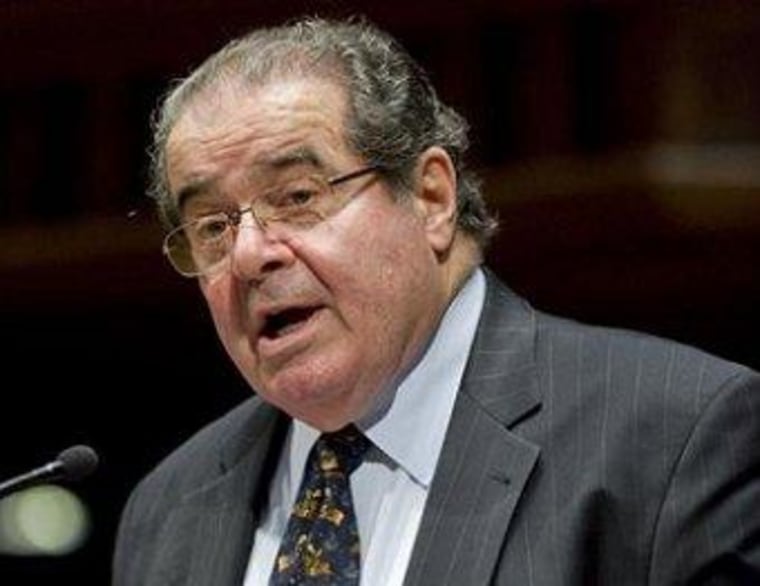Supreme Court Justice Antonin Scalia, fresh off his widely-derided political antics towards the end of the court's last session, sat down for a rare television interview last night. CNN's Piers Morgan asked the far-right jurist about the Citizens United ruling, and Scalia said there's nothing wrong with unlimited campaign spending, so long as there's disclosure.
"I think Thomas Jefferson would have said the more speech, the better," the high court justice said. "That's what the First Amendment is all about -- so long as the people know where the speech is coming from."
Adam Serwer noticed the trouble with this.
Scalia has expressed similar sentiments before, most notably in a 2010 case where anti-gay rights advocates in Washington State were attempting to block disclosure of signatories to a petition on the grounds that compelling them to do so violated their First Amendment rights. The Supreme Court disagreed, and in a concurring opinion Scalia wrote that "There are laws against threats and intimidation; and harsh criticism, short of unlawful action, is a price our people have traditionally been willing to pay for self-governance." [...]Nevertheless ... once in favor of disclosure in political spending, post-Citizens United GOP elected officials have fought tooth and nail to protect the identity of secret donors trying to influence American elections, most recently by blocking the DISCLOSE Act. They have embraced the Sarah Palin interpretation of the First Amendment: that the Constitution envisions not just freedom of speech but freedom from criticism.
Quite right. For years, whenever campaign-finance reform came up, Republican policymakers tended to seek two policies: unlimited donations and public disclosure. Sunshine, the GOP said, would solve any potential problems. Scalia, as of last night, still believes this.
But his party does not. The principle of disclosure that stood as the backbone of the Republican approach has since been rejected because, as Mitch McConnell and others see it, we must protect would-be donors from "intimidation" and "criticism." They still want to make it easy for rich donors to buy elections, but GOP leaders no longer like mechanisms that allow accountability.
Republicans have relied on Scalia to help clear the way for this new campaign-finance landscape, but they're ignoring the principle that even he still believes in.
